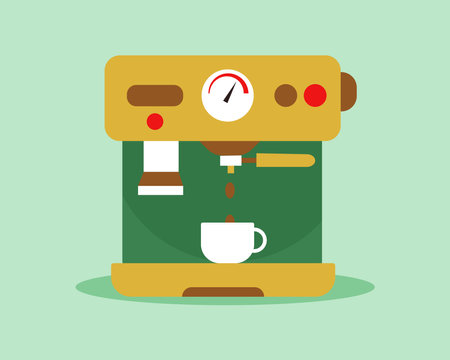1. Introduction to Coffee and Cognitive Function
In the United States, coffee isnt just a beverage—its a daily ritual, a cultural staple, and for many, the fuel that jumpstarts the day. Whether it’s a morning cup from a local café or a midday pick-me-up at work, coffee is deeply woven into American lifestyles. But beyond its social significance, coffee has also become a subject of scientific interest, particularly when it comes to how it affects the brain.
Americans consume over 400 million cups of coffee each day, making the U.S. one of the largest coffee consumers in the world. This widespread consumption has led researchers to take a closer look at how caffeine—the active ingredient in coffee—interacts with our cognitive functions such as memory, focus, alertness, and overall mental performance.
The Cultural Role of Coffee in America
Coffee shops serve as community hubs where people gather for work meetings, study sessions, or casual conversations. Popular brands like Starbucks and Dunkin have made coffee accessible on every street corner, while home brewing devices like Keurigs and espresso machines are now common household items. The popularity of specialty drinks like cold brew and oat milk lattes reflects not only changing tastes but also the evolving role of coffee in everyday life.
Scientific Interest in Coffees Mental Benefits
With so many people relying on coffee to stay alert and focused, scientists have been exploring how caffeine affects brain function. Studies suggest that moderate coffee consumption may offer several cognitive benefits thanks to its ability to block adenosine—a neurotransmitter that promotes sleep—and enhance the effects of other neurotransmitters like dopamine and norepinephrine.
How Coffee May Influence Brain Performance
| Cognitive Function | Effect of Coffee |
|---|---|
| Alertness | Caffeine increases wakefulness by blocking sleep-inducing chemicals in the brain. |
| Focus | Improved concentration due to enhanced dopamine activity. |
| Reaction Time | Faster responses observed in tasks requiring quick decisions. |
| Memory | Short-term memory performance may improve with moderate caffeine intake. |
A Common Daily Experience
If you’ve ever felt more awake after your first cup or noticed sharper thinking during a long meeting after sipping on a latte, youre not alone. These everyday experiences align with what researchers have found: coffee can temporarily boost several areas of cognitive function when consumed responsibly.
2. The Science Behind Caffeine’s Cognitive Boost
If you’ve ever relied on a morning cup of coffee to jumpstart your brain, you’re not alone—and there’s real science behind that mental kick. Caffeine, the main active ingredient in coffee, works like a natural stimulant that affects your brain chemistry in some fascinating ways.
How Caffeine Interacts with Your Brain
Caffeine doesn’t just wake you up—it changes how your brain communicates. It mainly interacts with a neurotransmitter called adenosine. Normally, adenosine builds up throughout the day and makes you feel tired. But when you drink coffee, caffeine blocks adenosine from binding to its receptors. That means you stay alert longer and don’t feel sleepy as quickly.
A Closer Look at Adenosine and Dopamine
Here’s where it gets even more interesting: by blocking adenosine, caffeine indirectly increases the activity of other important neurotransmitters like dopamine. Dopamine is often called the “feel-good” chemical because it helps regulate mood, motivation, and focus. This boost can help you stay on task and feel more engaged.
Cognitive Benefits of Caffeine
The effects of caffeine aren’t just about staying awake—they actually enhance specific mental functions. Here’s a quick breakdown:
| Cognitive Function | How Caffeine Helps |
|---|---|
| Alertness | Blocks adenosine to reduce fatigue and increase wakefulness |
| Memory | Improves short-term memory by enhancing signal transmission between neurons |
| Focus | Boosts dopamine levels to improve concentration and attention span |
| Reaction Time | Speeds up neural processing for quicker responses |
This is why many people find that their productivity gets a noticeable lift after a cup of coffee—it’s not just psychological; it’s chemical.
The Right Dose Matters
Of course, too much caffeine can lead to jitters or trouble sleeping, so moderation is key. Most experts recommend up to 400 mg of caffeine per day for healthy adults—thats roughly 3 to 4 cups of brewed coffee.
Understanding how caffeine works in your brain gives insight into why coffee is such a powerful tool for boosting cognitive performance—especially when used wisely throughout your day.

3. Coffee and Mental Clarity: Real-Life Applications
For many Americans, coffee is more than just a beverage—its a trusted companion throughout the day, especially when it comes to boosting mental clarity and cognitive performance. From early morning routines to late-night deadlines, coffee plays a significant role in how people stay focused, alert, and productive.
Morning Rituals That Kickstart the Brain
The day often begins with a cup of coffee as part of a familiar routine. This morning habit helps shake off grogginess and prepare the mind for the tasks ahead. The caffeine in coffee stimulates the central nervous system, leading to increased alertness and quicker reaction times—crucial for those early meetings or getting kids ready for school.
Typical Morning Coffee Routine
| Time | Coffee Activity | Mental Benefit |
|---|---|---|
| 6:30 AM – 7:30 AM | Brew first cup at home or grab from local café | Boosts wakefulness and prepares brain for decision-making |
| 8:00 AM – 9:00 AM | Sip coffee while checking emails or during commute | Aids in focus and short-term memory retention |
Coffee at Work: Fueling Focus and Productivity
Coffee continues to play a major role once Americans reach their workplaces. Whether it’s tackling spreadsheets, attending virtual meetings, or brainstorming ideas, caffeine provides the mental edge needed to stay sharp and efficient. Many offices even provide free coffee as a productivity booster.
Coffee Use During Work Hours
| Time of Day | Coffee Habit | Mental Performance Boost |
|---|---|---|
| 10:00 AM – 11:00 AM | Coffee break with colleagues or solo recharge | Sustains energy levels and improves concentration |
| 2:00 PM – 3:00 PM | “Second wind” cup to fight afternoon slump | Keeps attention high and supports clear thinking through end of workday |
Coffee Beyond the Office: Supporting Mental Performance Anytime
Apart from work hours, many Americans rely on coffee during study sessions, long drives, or even while managing household chores. The ability of caffeine to enhance reaction time, problem-solving skills, and sustained attention makes it a go-to tool for staying mentally engaged outside of traditional work settings.
Coffee Use Cases Outside Work
- Students: Use coffee to maintain focus during late-night study sessions or exams.
- Drivers: Rely on caffeine to remain alert on long road trips or night shifts.
- Parents: Grab quick cups throughout the day to juggle multitasking with clear thinking.
This widespread use of coffee across different parts of daily life highlights its role as more than just a drink—it’s a practical tool that helps keep minds sharp and decisions smart.
4. Long-Term Cognitive Benefits and Risks
When it comes to coffee, most of us think about the immediate boost—more energy, sharper focus, and a better mood. But what about the long-term impact on brain health? Over the years, scientists have been studying how regular coffee consumption might influence our brains as we age. The results are pretty encouraging, especially when it comes to reducing the risk of neurodegenerative diseases like Alzheimer’s and Parkinson’s.
How Coffee May Protect Your Brain Over Time
Coffee is rich in antioxidants and bioactive compounds like caffeine and polyphenols. These substances may help reduce inflammation and support brain cell function. Caffeine, in particular, plays a role in blocking adenosine receptors, which can help maintain alertness and possibly slow down cognitive decline over time.
What the Research Says
Several studies have explored the connection between long-term coffee consumption and brain health. Here’s a quick look at what researchers have found:
| Study | Findings |
|---|---|
| Rotterdam Study (Netherlands) | People who drank coffee regularly had a lower risk of developing Alzheimer’s disease over a 10-year period. |
| Harvard School of Public Health Study | Men who drank 3-5 cups of coffee daily had a significantly reduced risk of developing Parkinson’s disease. |
| Journal of Alzheimer’s Disease (2010) | Caffeine intake was linked with delayed onset of Alzheimer’s symptoms in older adults. |
The Right Amount Matters
Moderation is key. Most research shows that drinking 3 to 5 cups of coffee per day seems to offer the most benefit without increasing risks. Too much caffeine can lead to side effects like insomnia or increased heart rate, which may counteract some of the positives for your brain.
Potential Risks to Keep in Mind
While coffee has promising brain benefits, its not perfect for everyone. Some people are more sensitive to caffeine and may experience anxiety or sleep disturbances. Also, adding lots of sugar or high-fat creamers can turn your healthy cup into something less beneficial.
In short, enjoying your daily cup—or a few—of coffee might do more than keep you awake. It could also help keep your brain sharp for years to come.
5. Finding Your Perfect Coffee Balance
Not all coffee habits are created equal. While coffee can give your brain a much-needed boost, too much of it—or having it at the wrong time—can lead to unwanted side effects like jitters, anxiety, or trouble sleeping. Lets break down how to find your ideal coffee routine for better cognitive performance without the downsides.
How Much Coffee Is Just Right?
The sweet spot for most adults is between 200 to 400 mg of caffeine per day, which equals about 1.5 to 4 cups of brewed coffee. However, everyones tolerance is different based on factors like body weight, metabolism, and caffeine sensitivity.
| Body Type | Recommended Daily Intake | Approximate Cups (8 oz) |
|---|---|---|
| Sensitive to caffeine | 100–200 mg | 1–2 cups |
| Average adult | 200–400 mg | 2–4 cups |
| High tolerance | Up to 500 mg* | 4–5 cups* |
*Consuming over 400 mg daily may increase risk of side effects for some people.
The Best Times to Drink Coffee
Your body has a natural rhythm known as the circadian clock. Drinking coffee when your cortisol levels (your natural energy hormone) are already high can reduce its effectiveness. The best times to drink coffee are typically:
- Mid-morning (9:30 AM – 11:30 AM): After your morning cortisol peak has started to drop.
- Early afternoon (1:00 PM – 3:00 PM): When energy levels often dip post-lunch.
Avoid drinking coffee after 2:00 PM or within six hours of bedtime, especially if youre sensitive to caffeine. Late-day caffeine intake can interfere with deep sleep and hurt your brain’s recovery process overnight.
Tips to Maximize Benefits Without the Crash
- Stay Hydrated: Coffee is a mild diuretic. Pair it with water to stay hydrated and avoid headaches.
- Avoid Sugary Add-ins: Too much sugar can counteract the mental clarity benefits and lead to crashes.
- Try Smaller, More Frequent Servings: Instead of one large cup, try smaller amounts throughout the day for steady focus.
- Coffee + Protein or Healthy Fats: Eating something with your coffee helps prevent jitteriness and supports sustained energy.
- Cycling Caffeine: Take occasional breaks from caffeine (e.g., one day a week) to maintain sensitivity and avoid dependency.
Your Ideal Coffee Plan Might Look Like This:
| Time of Day | Coffee Strategy | Mental Benefit Targeted |
|---|---|---|
| 9:30 AM – 10:30 AM | Brewed coffee with breakfast or snack (protein/fat) | Mental alertness & motivation boost for work/school tasks |
| 1:00 PM – 2:00 PM | A smaller cup of black coffee or cold brew with lunch or shortly after | Sustained focus during afternoon slump without overdoing it |
| After 3:00 PM | No more caffeine; switch to herbal tea or decaf if needed | Avoid sleep disruption; allow brain to wind down naturally at night |
The goal is balance—not just more caffeine. By tuning into your body’s signals and using coffee strategically, you can enjoy sharper focus, better memory retention, and mental stamina without sacrificing sleep or comfort.

